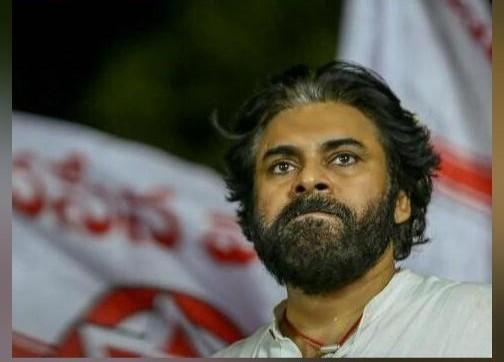
Like PM, Kalyan switches to English while speaking on J&K attack
The recent terror attack in Pahalgam, Jammu and Kashmir, has sent shockwaves across the country, leaving everyone in a state of distress. As the nation mourns the loss of lives and prays for the speedy recovery of the injured, two prominent leaders, Prime Minister Narendra Modi and Andhra Pradesh Deputy Chief Minister Pawan Kalyan, have made significant statements in response to the attack.
In a recent speech, Pawan Kalyan, who is the co-founder of the Jana Sena Party, switched from speaking in Telugu to English during his address, sending a strong message of solidarity with the people of Jammu and Kashmir and conveying his outrage at the terror attack. This decision to switch to English was seen as a deliberate choice to emphasize the gravity of the situation and to make a statement about India’s unwavering stance against terrorism.
Kalyan’s speech began in Telugu, as is customary in his native Andhra Pradesh. However, as he touched upon the topic of the Pahalgam attack, he suddenly switched to English, saying, “The attack has been one of the darkest days in entire country.” This sudden shift to English was a deliberate choice, meant to convey a sense of unity and solidarity with the people of Jammu and Kashmir, who primarily speak Urdu and English.
Kalyan’s decision to switch to English was not an isolated incident. Prime Minister Narendra Modi had made a similar switch earlier, sending a strong message of India’s fight against terrorism after the Pahalgam attack. Modi had addressed the nation in Hindi, condemning the attack and vowing to take all necessary steps to prevent such incidents in the future. However, as he spoke about the need to strengthen India’s defense and security systems, he switched to English, saying, “We will not let the terrorists succeed in their nefarious designs.”
This sudden switch to English was seen as a deliberate choice, meant to convey a sense of international solidarity and to emphasize India’s commitment to fighting terrorism. By speaking in English, Modi was able to reach a global audience and to send a message to the international community about India’s determination to combat terrorism.
The decision to switch to English in response to the Pahalgam attack is significant for several reasons. Firstly, it highlights the importance of the English language in contemporary India, where it is increasingly being used as a language of communication, especially in official and public contexts. Secondly, it underscores the need for politicians to be adaptable and flexible in their communication strategies, especially in times of crisis.
Moreover, the switch to English in this context was seen as a way to transcend linguistic and regional boundaries, and to convey a sense of national unity and solidarity. In a country as linguistically diverse as India, where different languages and dialects are spoken across different regions, the use of English as a common language of communication can be a powerful tool in bringing people together and promoting national unity.
In conclusion, the decision of Prime Minister Narendra Modi and Andhra Pradesh Deputy Chief Minister Pawan Kalyan to switch to English while speaking on the Jammu and Kashmir attack is significant, and sends a strong message about India’s commitment to fighting terrorism. By using English as a language of communication, these leaders were able to convey a sense of national unity and solidarity, and to reach a global audience. As the nation continues to grapple with the aftermath of the Pahalgam attack, the use of English as a language of communication is likely to play an increasingly important role in promoting national unity and solidarity.
Source:






